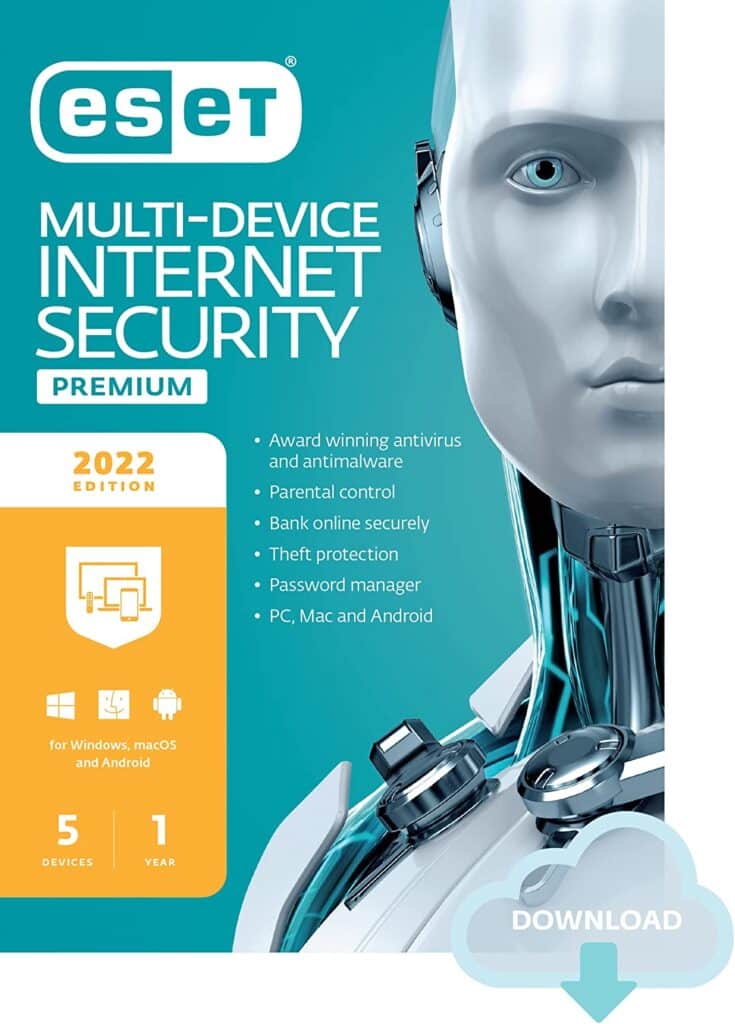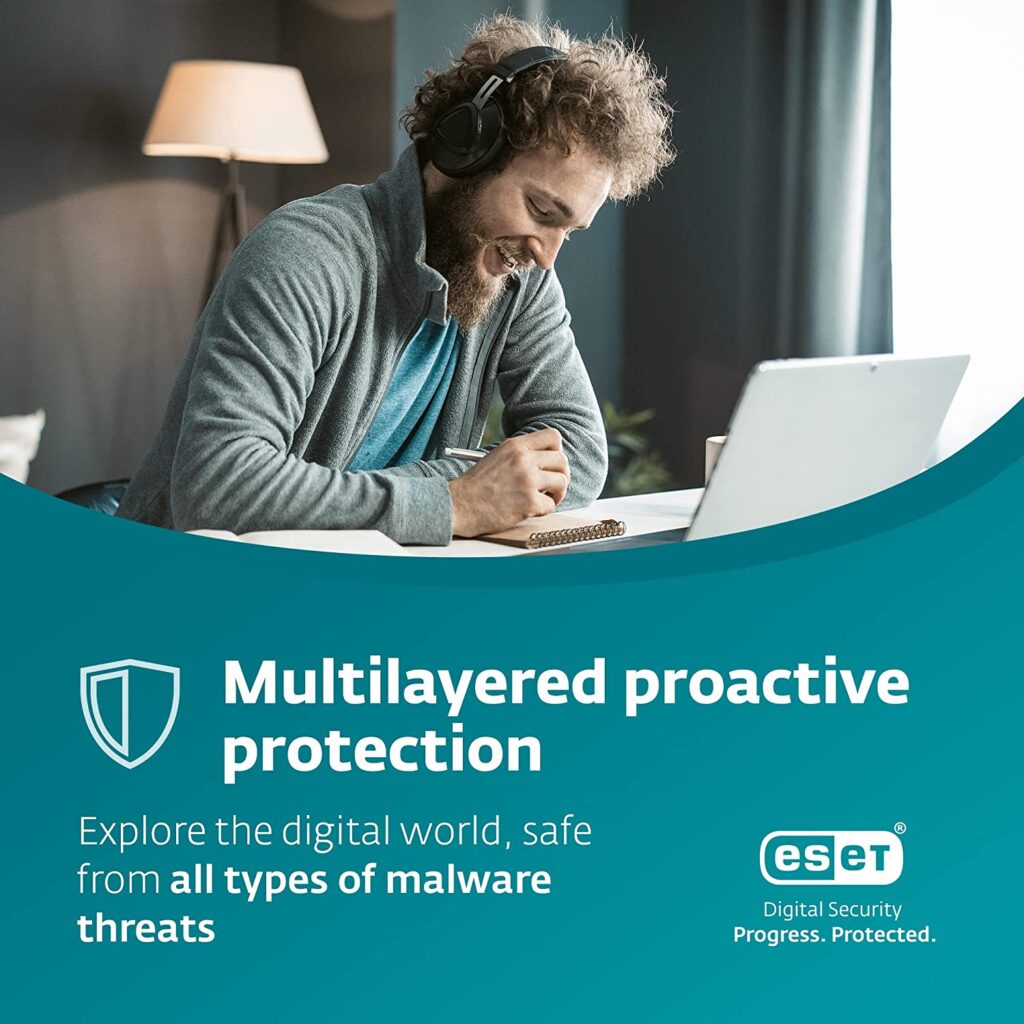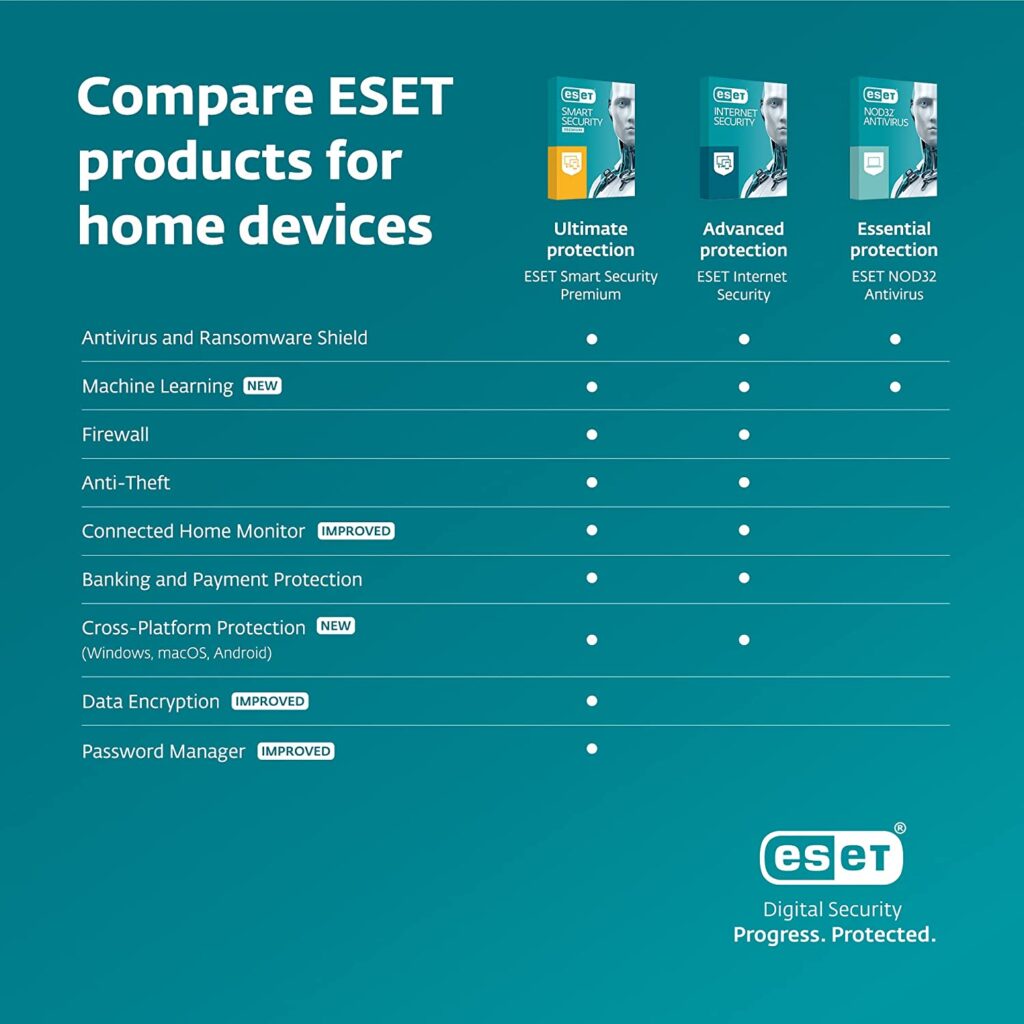If you haven’t heard, 2020 has been a banner year for malware. By preying on your worries, fraudsters have created a great opportunity for them to deceive you into downloading malware or even steal your logins or money. This implies that every security firm, including ESET Smart Security Premium, has strengthened protection with increased computer vision for better identification of attacks. Also including those delivered by email.
The corporation has also increased behavioral detection, which monitors for misuse of system files and other activity. It claims that Internet Security and Smart Security Premium 2021 are better at identifying ransomware or other malware that makes suspicious calls to encryption and decryption APIs.
This terminology may be beyond your computing skills. Also, this theme runs across many of the more technical capabilities and settings within ESET’s Windows software, which may require you to be a networking expert or super-geek to comprehend and operate.
What will you see here?
How Much Does ESET Smart Security Premium Cost?

ESET’s pricing structure is as simple as it gets. The basic antivirus license is $39.99 per year. The entry-level suite is $49.99, and the premium suite evaluated here is $59.99 per year. Additional licenses for each product cost $10 per year. Three licenses of ESET Smart Security cost $79.99, which is the same as the entry-level suites from Bitdefender Online Security, Kaspersky, and Trend Micro. ESET, like Kaspersky Security Cloud, charges $149.99 for ten licenses.
You used to have to pay $99.99 for an unlimited number of McAfee licenses. That membership now includes 10 licenses; unlimited is now $159.99, which is still cheap given that it protects every Windows, macOS, Android, and apple device in your home.
Self-protection

Malware may seek to stop antivirus before beginning a full-scale infection attempt. Therefore security software must be capable of protecting itself.
Simulating various assaults on a Windows antivirus – removing files, suspending processes, terminating internet connections, deactivating filter drivers, altering settings, and so on. Also seeing if our security was compromised. One assault broke a critical component of ESET’s real-time file monitoring, while another virtually disabled all of ESET’s defensive layers.
That has to worry us, especially because most antivirus programs identify and block all of our hacking efforts. However, there are further considerations to consider.
There’s no indication that these flaws have ever been exploited, for example. An attacker couldn’t compromise your computer unless you executed code with administrator privileges. Even so, ESET says that code may be discovered and banned.
Furthermore, when submitting our results to ESET, the business reacted fast, admitting the flaws, correcting one nearly immediately, and planning to handle the other. That’s a far better outcome than seen from some of the competitors.
Interface of ESET Smart Security Premium
The design of ESET NOD32 is similar to that of many other antivirus programs: a basic dashboard displays your current security status, you can conduct a complete system scan with a single click, and there is a sidebar that allows you to browse the program’s additional features and functions.
This is simple and uncomplicated, and even the most inexperienced security neophyte should immediately feel at ease. But don’t be misled; there’s more to the app than meets the eye.
For example, the dashboard window may be resized, and many panels automatically adjust their layouts to make the greatest use of the available interface. It’s a clever addition that eliminates scrolling and allows you to see complex reports more easily.
Discovered some very strong capabilities while exploring the UI more. The Log Files panel may appear to be a simple table of recent antiviral occurrences, but when you right-clicked, a menu with a slew of advanced spreadsheet-style capabilities is revealed, including filtering by numerous factors, copy and delete choices, search tools, and export to multiple formats.
Some interface incompatibilities exist. The Log window allows you to copy everything by right-clicking and hitting Ctrl+A and Ctrl+C; the Processes window does not have a right-click menu and pressing Ctrl+A simply picks the first item in the list.
However, ESET’s UI is still more appealing than the majority of the competition. If you’re a techie, be sure to left-click every link and then right-click every object to get a sense of what it’s capable of.
Antivirus:
ESET’s scan types are more limited than those of other competitors, with just Full System, Removable Devices, and Custom scans available.
There is no Quick Scan, at least not as a standard feature. You can build scan profiles to do more, but it’s not obvious, and you might not notice it exists unless you begin exploring ESET’s menus.
The software scanned 50GB of executables in 33:23 minutes for the first run and 10:21 minutes for the second. Most antivirus programs require 15-50 minutes for the optical scanner, and that’s an acceptable middle-of-the-road duration.
This adaptability may see practically everywhere. When you right-click a file in Explorer, ESET NOD32, like everyone else, offers to check it for risk. However, you may review the file’s reputation to learn more about it; scan the file without cleaning it to receive an immediate judgment; or manually quarantine a file even if it hasn’t been detected as malware, which is a highly helpful technique to safely archive a file you’re worried about.
Protection:

The Real-World Protection AV-Comparatives compares 17 of the best Windows antivirus engines against both well-known and emerging threats.
AV-Test publishes six Home Windows User reports every year, each of which gives an antivirus a maximum of six points for protection. Most manufacturers received a maximum score of 36 for the previous year (Avast, Bitdefender, BullGuard, F-Secure, Kaspersky, McAfee, Microsoft Defender, and Norton). However, ESET fell short with a score of 34.5.
SE-Labs’ Home Anti-Malware Protection reports have not lately covered ESET. It did well in its most recent appearance (Q1 2021), finishing joint fourth out of 15 with a Total Accuracy Rating of 100 percent.
Blocking malicious sites:
ESET NOD32 Antivirus has two URL filtering layers: the first protects you against phishing sites, while the second employs several technologies to prevent more general online threats.
Both layers are conveniently in embed into the main engine. You don’t need to install extensions or worry over which browsers are in protection or support; you’re automatically is in secure for everything that connects to the internet.
There are also other configuration possibilities. Most are on/off switches that you’ll seldom use — for example, you can deactivate scanning for HTTP sites, though that’s probably a poor idea.
According to AV-2021 Comparative’s Anti-Phishing, ESET stopped 91% of malicious URLs. That’s adequate, but not exceptional. It surpassed Bitdefender, but behind Avast (96 percent), Trend Micro (96 percent), and Kaspersky.
However, ESET performed somewhat better. Also discovered that it was intelligent enough to detect web dangers other than phishing sites. When you directed it to a new link that contained a Bitcoin mining script, for example, ESET evaluated the script and identified the risk. Also, notify us of a ‘possibly unwelcome program.’ The ultimate outcome is quite similar to what is experienced with an antiviral. ESET NOD32 performs admirably and will keep you safer than before, but it falls short of the competition’s finest.
Device control:

ESET’s extra features begin with Device Control. An interesting feature that allows users to define what occurs when a variety of device types are connected to the system: outside storage. A USB printer, Bluetooth device, scanner, smart card reader, modems, and more.
Options include making devices read-only, providing a warning to users, or completely banning them. Rules can also apply to all or specified devices. Some or all user accounts and all device connections are in the log for further review.
It’s a strong system, considerably superior to G Data’s comparable Device Control function, but it’s also difficult to set up. There is no user-friendly visual rule generator or a simple collection of prebuilt rules. Instead, you’re largely selecting technical alternatives from lists and hope you get them right.
Beginners should usually avoid the Device Control panels, although it has a genuine commercial use. Once it is operational, you may lock down critical systems and make it more difficult for staff to copy sensitive data to their own USB keys.
Conclusion
ESET Smart Security Premium – and Internet Security – are powerful tools for safeguarding your data and computer from malware. Also, there is some speed impact, the worst is while installing software, which you won’t do very frequently. When you take into account the cost per device. It’s not a terrible deal if you have a family’s worth of gadgets to secure. But it’s far from the cheapest option.
It’s also not the most user-friendly. This is OK if you want to install it and forget about it. But it means it’s best to suit geeks who want limitless options and plenty of customizing.
















